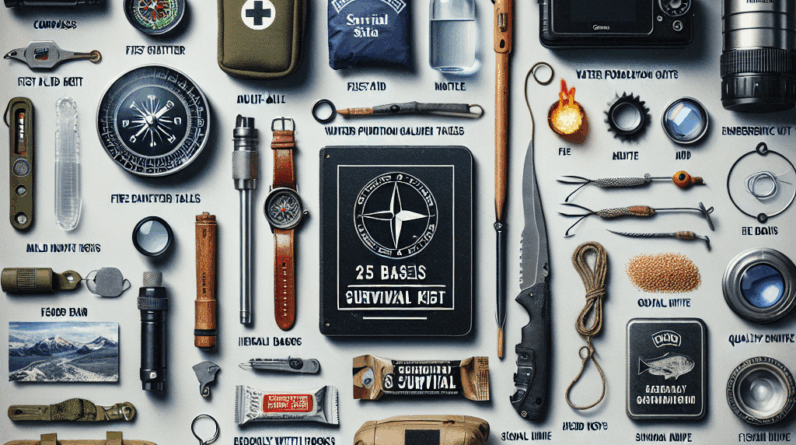Ensuring your family’s safety during times of civil unrest can be daunting, but with the right information and preparations, you can significantly enhance your household’s security. This guide delves into essential strategies to keep your loved ones safe.
Stay Informed and Aware
# Understanding the Situation
Staying updated is vital in understanding the dynamics of civil unrest. It’s important to follow local news, social media feeds, and community alerts to gauge the situation accurately. I recall a period of heightened tension in my area where following local news and Twitter updates was invaluable. Being well-informed can provide crucial insights into when and where unrest might occur.
It’s essential to filter the information you receive. Not all online content is factual, and learning to identify trustworthy sources is crucial for making informed decisions. In challenging times, the right information can be a lifeline.
Additionally, participating in community safety groups can be beneficial. These groups provide updates and support, helping you stay connected and informed about your immediate surroundings. This communal approach can also alleviate feelings of isolation during stressful times.
# Prepare a Family Plan
Creating a comprehensive family emergency plan is critical. Discussing and deciding on roles, meeting points, and communication methods in advance can reduce stress and confusion during an emergency. I remember the relief I felt after my family and I established a clear action plan.
Ensure that your plan includes emergency contacts and regular check-ins. Having a written list of essential contacts for each family member is invaluable, especially under stress.
Regular drills and plan updates are also necessary. Treat these sessions like routine fire drills to keep everyone prepared and confident in their roles.
Assemble a Go-Bag
# What to Include
Your go-bag should contain necessities such as first-aid items, water, non-perishable snacks, flashlights, and spare clothing. Being prepared with these items can prevent discomfort and panic during emergencies.
Important documents should not be overlooked. Keep copies of IDs, insurance details, and other critical documents in your go-bag. A small emergency radio is also a must-have to stay informed during network outages.
Customize your go-bag according to your family’s specific needs. For families with young children, including comfort items like toys or blankets is crucial.
# Keep It Visible and Accessible
Store your go-bag in an easily accessible location, such as by the front door or in your car’s trunk. It’s surprising how easily one can forget about an emergency kit if it’s out of sight.
Identify and maintain a specific storage spot that all family members are aware of. Label the bag with bright colors to increase visibility and ensure it’s easy to grab in a hurry.
Regular maintenance of your go-bag is essential. Replace expired items and outdated supplies every six months to ensure everything is functional and ready to use.
Stay Connected
# Communication Tools
Ensure all family members have access to charged mobile devices and are familiar with essential communication apps. Investing in apps that function without cellular service can be a game-changer during network disruptions.
Establish a family group chat for quick updates and check-ins. Simple tools like WhatsApp can effectively keep everyone informed.
Practice your communication plan regularly. Running through scenarios can help your family respond calmly and efficiently during actual events.
# Emergency Contact List
Compiling a comprehensive emergency contact list is a basic yet vital preparation step. Keep a physical copy in a common area like the refrigerator and store it digitally where it’s easily accessible.
Expect network issues during major disruptions. Having alternative contacts, like neighbors or friends, can prove invaluable when primary lines of communication fail.
Regularly update your contact list to reflect any significant changes in your support network.
Stay Calm and Assess the Situation
# Managing Your Emotions
Keeping calm during unrest is crucial for effective decision-making. Leading by example can help maintain a serene environment for your family. Techniques such as deep breathing and mindfulness can aid in managing stress and keeping everyone grounded.
Create a calm, safe space in your home where family members can find peace and security. Clearing negative vibes and incorporating soothing elements like candles or music can help stabilize emotions.
# Grasping the Bigger Picture
Take the time to accurately assess ongoing events before reacting. Listening and observing can often provide a clearer picture than speculative media reports.
Encourage your family to think critically and assess situations realistically. Knowing when to evacuate and seek safety can be life-saving.
Conclusion
Protecting your family during civil unrest requires continuous effort and vigilance. By staying informed, preparing adequately, ensuring communication, and managing stress, you can create a safer environment for your loved ones.
FAQs
# 1. How do I stay updated on civil unrest in my area?
Stay tuned to local news outlets, follow social media platforms, and join community safety groups that share updates on any civil unrest.
# 2. What essentials should I include in a go-bag?
Your go-bag should contain first-aid supplies, water, non-perishable snacks, a flashlight, a whistle, a radio, and copies of important documents.
# 3. How often should I review my family safety plan?
It’s wise to revisit your family safety plan every few months or after any significant family changes to ensure everyone is on the same page.
# 4. Why is remaining calm important during a crisis?
Remaining calm helps you think clearly and make informed decisions. Your composure can influence how your family reacts in a stressful situation.
# 5. What should I do if I can’t get in touch with family members during unrest?
If communication fails, try reaching out to close friends or neighbors as an alternative. Having a pre-established emergency contact list can be beneficial in these times.



